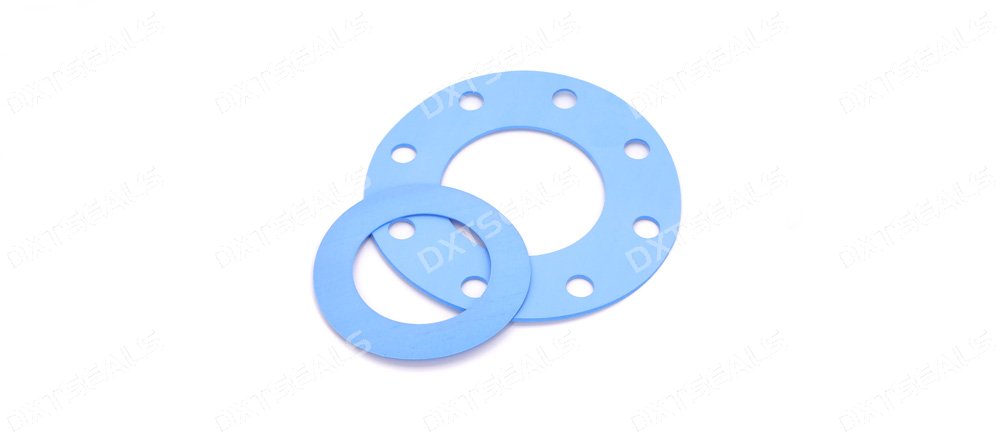
PTFE (Polytetrafluoroethylene) gaskets are widely used in various industrial applications due to their unique properties. Known for their excellent chemical resistance, high-temperature tolerance, and low friction, PTFE gaskets perform well in extreme conditions where other gasket materials may fail. This article explores the operating conditions where PTFE gaskets excel and the key advantages they offer.
1. Operating Conditions of PTFE Gaskets
a. Chemical Processing: PTFE gaskets are highly resistant to most chemicals, including aggressive acids, alkalis, and solvents. This makes them the preferred choice for applications in chemical processing plants, where they must withstand harsh environments without degrading.
b. High Temperature Environments: PTFE gaskets can endure temperatures as high as 260°C (500°F) without losing their integrity. They are ideal for use in equipment that operates under high thermal stress, such as heat exchangers, steam systems, and industrial ovens.
c. Cryogenic Applications: On the opposite end of the temperature spectrum, PTFE gaskets also perform well in cryogenic conditions, as low as -200°C (-328°F). This makes them suitable for low-temperature systems, such as liquefied gas storage and transportation.
d. Pharmaceutical and Food Industries: Due to PTFE's non-reactive and non-toxic properties, PTFE gaskets are commonly used in sanitary environments such as pharmaceutical manufacturing, food processing, and medical device assembly. They are safe for applications where cleanliness and purity are critical.
e. Electrical and Electronics Industry: PTFE gaskets have excellent electrical insulation properties, making them suitable for use in electrical equipment and electronic devices. They are frequently used in sealing applications where insulating properties are required, such as in circuit boards or sensitive electronic components.
2. Advantages of PTFE Gaskets
a. Chemical Resistance: PTFE gaskets offer unmatched chemical resistance, standing up to a wide range of corrosive substances. Unlike other gasket materials, PTFE remains stable when exposed to harsh chemicals, making it the go-to choice for chemical plants and industries handling hazardous substances.
b. Wide Temperature Range: The ability of PTFE gaskets to operate effectively in both high and low temperatures gives them a versatile advantage. Their durability across a broad temperature spectrum ensures a longer service life in extreme applications.
c. Low Friction and Non-Stick Surface: PTFE gaskets have a very low coefficient of friction, which reduces wear and tear in dynamic sealing applications. Additionally, their non-stick surface minimizes material build-up, making them ideal for systems where smooth operation is essential.
d. Non-Toxic and Safe for Sensitive Applications: As PTFE is non-toxic and inert, it is safe for use in sensitive applications like food processing and pharmaceuticals. The material does not contaminate the substances it comes into contact with, ensuring product safety and compliance with health regulations.
e. Electrical Insulation: The excellent dielectric properties of PTFE make it an excellent choice for applications requiring electrical insulation. PTFE gaskets help protect sensitive electrical components from damage caused by moisture, chemicals, or temperature fluctuations.
f. Longevity and Durability: PTFE gaskets have an exceptional lifespan due to their resistance to wear, chemical degradation, and temperature extremes. This reduces the need for frequent gasket replacements, saving time and maintenance costs for businesses.
Conclusion
PTFE gaskets are the preferred sealing solution for industries requiring excellent chemical resistance, wide temperature tolerance, and durability. Their versatility and reliability in demanding environments, such as chemical processing, pharmaceutical manufacturing, and electronics, make them an indispensable component in modern industrial applications. When high performance is needed, PTFE gaskets deliver.
